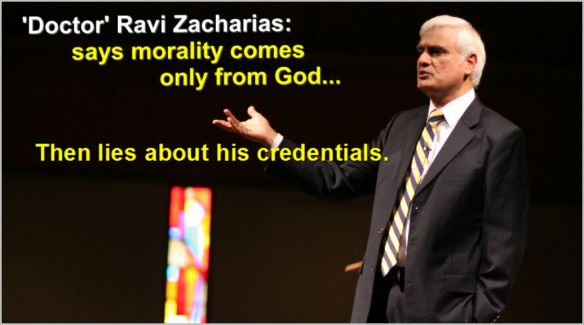As we’ve seen, so much about Jesus appears to have been invented and made up; literally, ‘envisioned’. Almost everything he said and did, including his death and resurrection, derive from Paul’s teaching and the Old Testament. Mark created his gospel narrative out of these, embellishing the story with ideas from other, pagan myths. Mark’s gospel then served as the basis of the other three canonical gospels.
It could be argue that none of this suggests Jesus didn’t exist. He could still have been a real life human being who wandered around Palestine, teaching people about the End of the Age. In which case, why did Paul and the later gospel writers have to make so much up about him, as clearly they did. Why didn’t they report directly what he taught, instead of quoting the Old Testament as Paul does when he talks about his Christ (he tells us this is what he’s doing, in Romans 15.2-4)? Not once does he refer to anything the historical Jesus said. Neither do the gospel writers. They make stuff up, they alter what their predecessors say, they dip into the Old Testament to construct Jesus’ teaching.
Why? If the real Jesus was such a Great Teacher, who had so much wisdom to impart, why don’t we find it in the gospels instead of this amalgam of other sources? Was his teaching so unimpressive and unmemorable that a new script had to be written for him? If so, how did he attract the fame and following he purportedly did? Why are the gospels literary creations and not the kind of reporting we might expect if they were relating the sayings and doings of one man? Why do the gospels have their own distinct agendas when they are supposedly reporting the views of a real individual? Why are there so many interpretations of Jesus in the New Testament: Jewish Jesus, Gentile Jesus, Anti-semitic Jesus, Gnostic Jesus, Anti-gnostic Jesus, Radical Jesus, Pacifist Jesus, Saviour Jesus, High Priest Jesus, Cosmic-judge Jesus? Why, if it really happened, does the resurrection read like myth, with all the differences in detail between the accounts? Why does Paul talk about it as something that was only revealed in ‘visions’? Why does Mark hint that his Jesus story is a parable, the true meaning of which can only be discerned by the spiritually mature (Mark 4.10-12)?
If Jesus was real, none of this – the myth making, the invention, the reliance on the Old Testament – would be necessary.
That Paul and the gospel writers made up so much suggests there wasn’t a real person on whom their teaching and stories are based. Jesus Christ was the result of the ‘visions’, dreams and hallucinations that someone called Cephas and a few others, Paul included, experienced.
There was no historical Jesus, no miracles, no wondrous teaching, no crucifixion, no resurrection, no ascension. There will be no second coming, no final judgement, no Kingdom of Heaven presided over by someone who originally lived 2000 years ago. Why? Because every bit of it is make believe.











